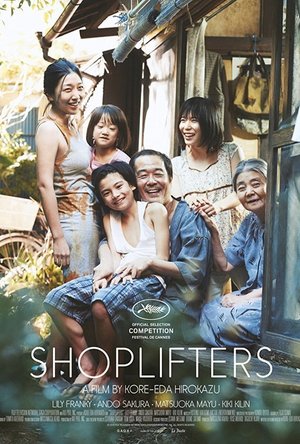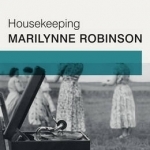
Vogue Living
Lifestyle and Magazines & Newspapers
App
Download our NEW-LOOK app now also available on your iPhone! * Subscribe for 1 year and get your...

Valleywood: The Autobiography of Lateysha Grace
Book
Since exploding on to our screens as part of the MTV show The Valleys, diva Lateysha Grace has...
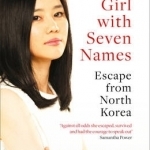
The Girl with Seven Names: Escape from North Korea
Book
NEW YORK TIMES BESTSELLER An extraordinary insight into life under one of the world's most ruthless...
Carma (21 KP) rated Condemned & Admired - The Earl's Cunning Wife (#9 Love's Second Chance Series) in Books
Jun 17, 2019
Our heroine starts as Violet Winters, daughter of Viscount Silox on a night when her mother makes the ultimate sacrifice to save both her and her daughter from a life of hell.
Fast forward the story to Violette Duret and the mission she is on to save her family.
Oliver Cornell is the Earl of Cullingwood and he is tired of the rules and regulations he must follow to keep the titles in his family. He is young and just wants to have fun and enjoy himself, much to the chagrin of his father. When he wakes up on a ship headed to see he thinks he has found his ticket to freedom.
When Violette and her family pull their ship over to commandeer the vessel they dont realize the precious commodity they now have on board. When the Earl reveals his identity she realizes he could help with her plan.
Violette and Oliver set off on an adventure that brings her right back into the family life her mother fought to remove her from. Will she make it out a second time?
A well written historical story with plenty of description of times in 1800s England. I enjoyed the storyline of Violette and Oliver and look forward to reading her mothers story in Trapped and Liberated. I received a copy without expectation for review, any and all opinions expressed are my own. I have a couple other books by Ms. Wolf on my TBR, cant wait to dive in.
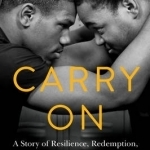
Carry on: A Story of Resilience, Redemption, and an Unlikely Family
Book
In the spirit of The Blind Side and Friday Night Lights comes a tender and profoundly moving memoir...
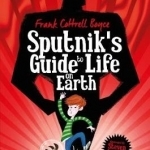
Sputnik's Guide to Life on Earth
Frank Cottrell Boyce and Steven Lenton
Book
The Blythes are a big, warm, rambunctious family who live on a small farm and sometimes foster...

A Place For Us
Book
The first novel from Sarah Jessica Parker’s new imprint, SJP for Hogarth, A Place for Us is a...
Lucy Buglass (45 KP) rated Shoplifters (Manbiki Kazuko) (2018) in Movies
Jun 20, 2019
As the title suggests, some members are petty criminals and frequently shoplift from local supermarkets and convienience stores in order to survive. It’s become a talent in the family, passed down from father to son and almost feels like a bonding exercise when you witness the way they work together. The family leads a simple life, justifying their actions by telling themselves if the theft doesn’t bankrupt the store owner, then they can survive without the items they took. It’s a way of clearing their conscience and seems to work very well. Osamu and and his son, Shota are the major players in the art of shoplifting, and are literally partners in crime.
Their lives change when they encounter Yuri, a young child who is outside in the freezing cold and looks malnourished. Despite the fact they already have too many mouths to feed, Osamu makes the decision to take her home and give her food and shelter. It soon becomes clear that Yuri has suffered abuse, based on the marks on her arm and her very quiet and timid behaviour. They decide to keep her as part of the family, fearing for her wellbeing.
This decision makes life even harder for the family as they have to evade the police both when shoplifting, and when going out in public with Yuri, as she soon becomes a missing person. This selfless act forms the rest of the film, resulting in a gorgeous 2 hours of cinema.
I was completely blown away by Shoplifters and its intimate portrayal of family life. As the film progressed, I found myself bonding with the characters as an audience member. I enjoyed seeing them on screen and going with them as they went about their daily lives. Each character has so much depth, their own wants and desires and their own secrets, to the point where they feel real. It could have easily been a documentary based on how close we are to the subjects, and how much we learn from them. Their character development is just stunning, and events in the third act left me in a stunned silence as we discover some harsh truths about the family.
The visual style varies from scene to scene, switching from clean and clinical streets to the cramped, messy apartment and back again. We are given a well-rounded and contrasting look at Japan’s capital and the people that live in it. The family have next to nothing but their bond is strong, doing everything they can to keep each other happy and healthy. We see them enjoying a day at the beach and watching the fireworks, activities that are both free and a lot of fun. The film certainly places a strong focus on life’s simple pleasures, and gives you a sense of gratitude throughout. Though harrowing in places, the happier moments radiate from the screen and leave you smiling to yourself because of how beautiful and convincing they are. It’s truly an emotional rollercoaster.
I have never seen a film quite like Shoplifters and though its pacing is slow, the bonds between characters and the deep exploration of their lives is enough to keep you glued to the screen throughout. It is certainly deserving of its Cannes win, because of its deep, thorough and complex exploration of family life. It will warm your heart and break it soon after, leaving you wanting to stay in their lives by the time the credits roll. This is a must-see.
https://lucygoestohollywood.com/2018/11/25/my-thoughts-on-the-2018-palme-dor-winning-film-shoplifters/
Alison Pink (7 KP) rated The Foremost Good Fortune in Books
Jan 15, 2018
This book was interesting on many fronts. I was fascinated to read about life in China & how the author & her family adapted to China. They were just beginning to feel comfortable there, when I author was diagnosed with breast cancer. The book follows their journey through China, the US & back to China. I was entranced with Conley's descriptions of her battle with cancer. I have watched people fight this from the outside & thankfully have not had to experience from the other side. Her thoughts & descriptions gave me a peek into what a cancer patient goes through.
My heart went out to her & her family. I was rooting for her & them through the entire ordeal. I hope she continues to live a long, happy, & healthy life. I look forward to reading more from her!
Suswatibasu (1703 KP) rated Housekeeping: Faber Modern Classics in Books
Sep 7, 2017
Ruth, who is our main narrator, is speaking about her childhood in which her sister Lucille and her were continually abandoned by one family or another. Eventually they end up with their deeply eccentric aunt Sylvie, and she seems completely incapable in many ways of being a responsible parent, but rather a sister instead. She leads a transcient life, having deserted her husband, jumping on trains to get from place to place. She's a spirited wanderer, and sees Ruth as an ally and her own sister, Helen, who killed herself at the start of the book.
Their solitary life of never mixing, but staying in the great outdoors both seems idyllic and claustrophobic. There are images of the lake where the children's mother committed suicide, that seem to draw the women to this area. The metaphors are cold and quiet hence it feels unnerving.
It's a classic American tale about real women, which makes this different to the old books talking only about marriage and fidelity.

